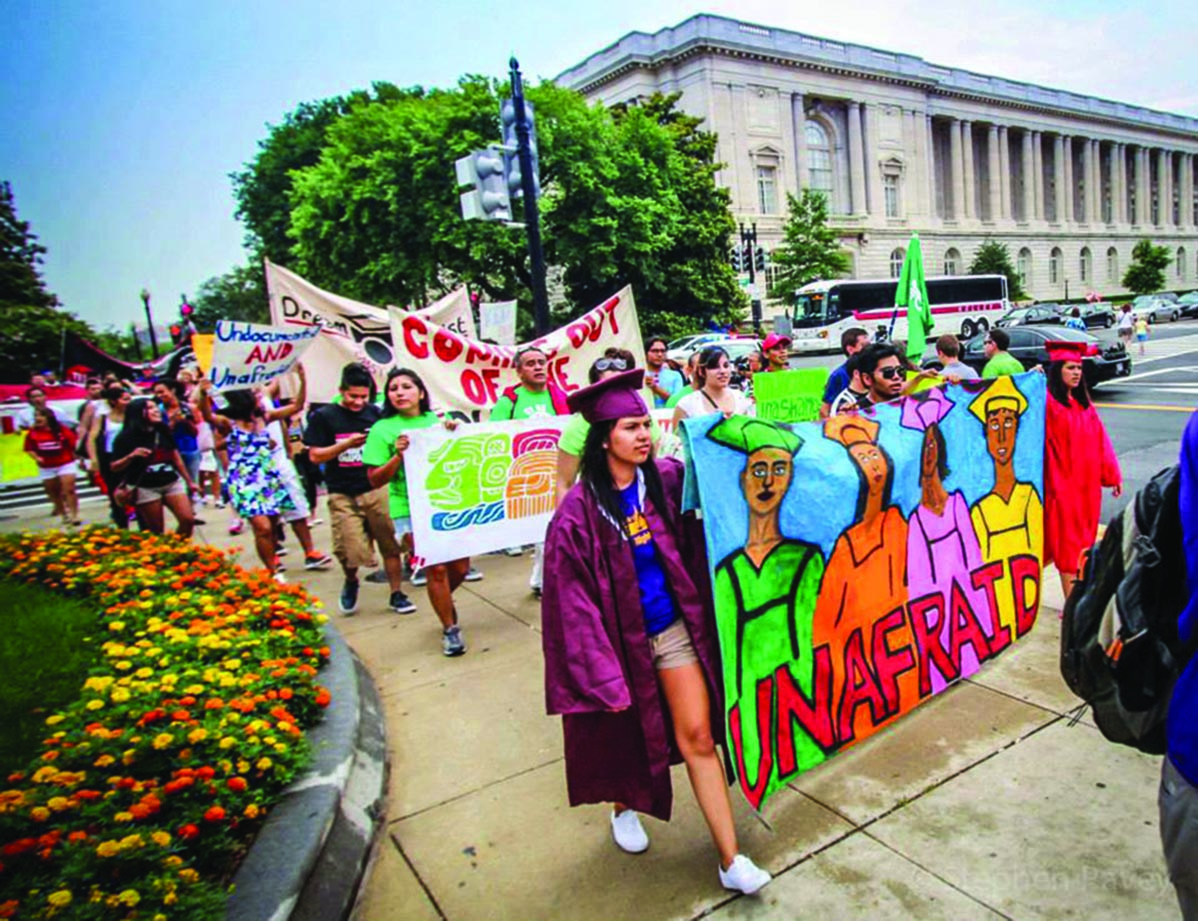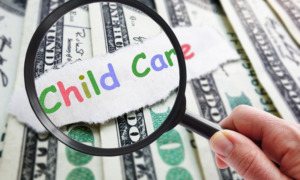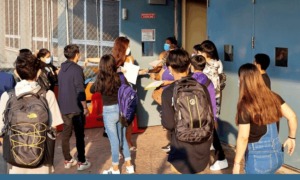Maria Carrillo-Garcia found herself in tears on the night of Nov. 8, 2016.
“This election was really hard,” she said. “I just cried myself to sleep.”
The junior at Kennesaw State University is the daughter of undocumented Georgia residents. She has a work permit and official permission to live in the United States under the Deferred Action for Childhood Arrivals (DACA), but that program could end under the Trump Administration.
“You might get deported from the country you’ve been in your entire life,” she said.
Fear of deportation under the Trump Administration has become a shadow hovering over the lives of thousands of young people.
Many, like Maria, have known no home other than America, having come here with their families as young children.
Some fled Central America to rejoin parents they had not seen in years.
Others were born in the United States and are citizens, but they fear for their undocumented parents.
And those who registered to gain temporary legal status under DACA — President Obama’s 2012 executive order — now fear they could lose that status or even that they are on a list that could hasten their deportation.
But some of these young people are also part of a youth-led movement to protect undocumented residents, remove barriers. That to education and reshape immigration policy.
An unintentional activist
Three years ago, Carrillo-Garcia joined the Georgia Undocumented Youth Alliance. Before that, she was never inclined to be an activist.
“I was very shy,” she said. Her parents had attended immigration rallies, but “you wouldn’t see me at these type of events,” she said.
But during her senior year at Roswell High School in the northern suburbs of Atlanta, she realized how limited her prospects were compared to many of her classmates. Georgia has one of the most restrictive policies in the nation around undocumented students, barring them from attending the state’s top public universities. They must pay out-of-state tuition at others.
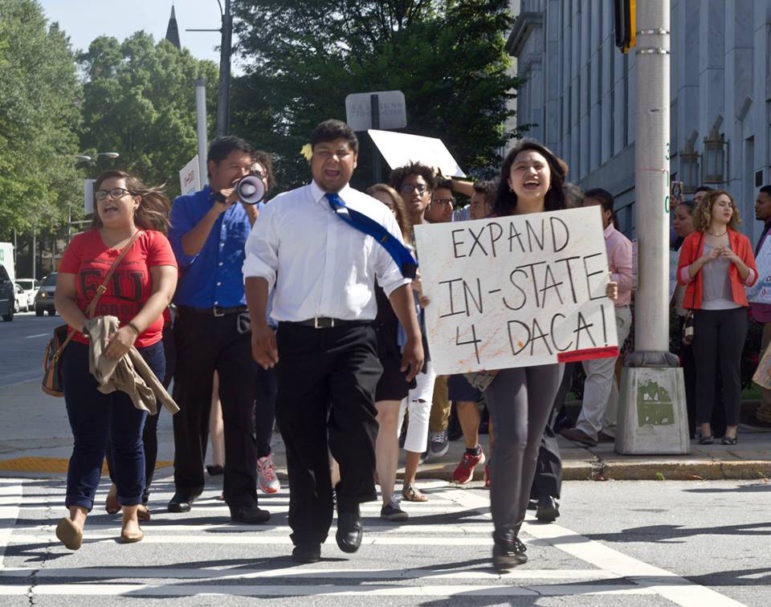
Through the Georgia Undocumented Youth Alliance, students organize and petition for state tuition at Georgia public universities.
That year Carrillo-Garcia joined the Georgia Undocumented Youth Alliance, she took on small tasks. “I was in charge of coffee and donuts,” she said.
But she progressed to speaking to the media and even becoming a plaintiff in a court case against the Georgia Board of Regents, the governing body of the state’s university system. Students sued the Board of Regents in April 2016 for banning undocumented students who have legal status under DACA.
When the Georgia Undocumented Student Alliance planned various actions, each member was assigned a specific task, Carillo-Garcia said.
Some found speakers. Others wrote press releases and contacted the press. Someone would make phone calls to urge other students to take part, another would handle social media. In the process, students learned many skills.
Youth-led movements
Leaders in the field of youth development have pointed to the value of youth-led civic work. Young people develop communication, decision-making and interpersonal skills, as well as a sense of social responsibility. (See cover story.)
But many youth-led advocacy groups don’t necessarily have the urgency that propels undocumented young people. People’s lives can be destroyed, said Jessica Colotl, who knows firsthand.
Colotl was an undocumented student at Kennesaw State University in 2010, one semester away from graduating, when she was arrested for a minor traffic violation. She was found to be driving without a license, was handed over to federal immigration authorities and was sent to a detention center in Alabama. She fought a nearly three-year legal battle, gaining a deportation deferral and dismissal of felony charges.
“We’re integrated into this country, we have jobs, pay taxes,” she said. “To think that all of this could be taken away …”
Colotl is now a paralegal in the Atlanta law firm of Charles Kuck, who was her immigration attorney.
Among her co-workers is Stephanie Lopez, 21, an administrative assistant. Lopez has a work permit under DACA for now.
“I know how hard it is for undocumented people to get a job,” she said. “I also fear for my brother and sister since I kind of raised them.”
Kuck, the attorney, said the feeling among undocumented youth since the election is “kind of like letting air out of a balloon,” he said. It’s not despair, exactly, but “a settled sadness.”
There’s also a lot of fear, he said.
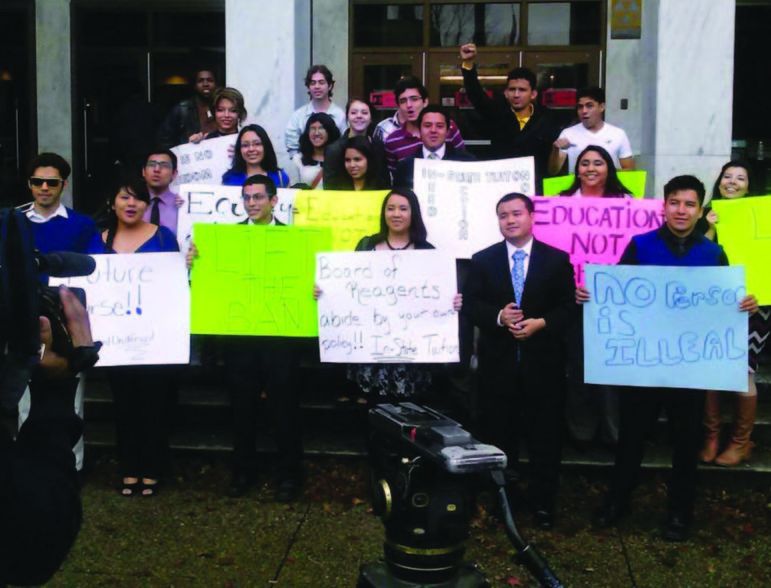
But haven’t they broken the law?
To some Americans, the issue seems like a simple one: Immigrants take away jobs and pose an economic threat to Americans, according to the Federation for American Immigration Reform (FAIR). Immigrants without official documents should be treated as criminals, they say.
Yet, according to an August 2016 Pew Research poll, 71 percent of Americans say those who are in the U.S. illegally mostly take jobs U.S. citizens don’t want. And research by economists at the Federal Reserve Bank of Atlanta and published in April in the Southern Economic Journal said that the impact of unauthorized immigration was to raise wages.
An entire generation has been impacted by the increasing criminalization of immigrants, according to researcher and activist Jill Anderson in her October 2016 paper “Bilingual, Bicultural, Not Yet, Binational: Undocumented Immigrant Youth in Mexico and the United States.” She wrote that even as goods and services are moving more freely under globalization, the movement of people has become more circumscribed.
Of all undocumented youth in the United States, only about 10 percent gained status under DACA. Another 15 percent have been exiled, Anderson wrote. The rest live in a legal limbo.
A guide by the U.S. Department of Education said undocumented immigrants are among the most vulnerable populations served by American schools. About 7 percent of schoolchildren in the United States live with an undocumented parent, according to the Pew Research Center.
And only 5 percent to 10 percent of undocumented youth go on to college, according to the U.S. Department of Education guide. The guide encourages “caring adults” to support these young people in gaining an education.
In the meantime, groups like Georgia Undocumented Youth Alliance have formed.
Its members have repeatedly demonstrated at meetings of the Georgia Board of Regents. In January 2015, 50 students held a protest at the University of Georgia, and nine were arrested.
When young people see the reality of their limited prospects “that’s what pushes people into activism, especially here in Georgia,” Carillo-Garcia said.
Becoming involved “opened me up to be brave,” she said. “I know that I can make a difference.”
“When you’re part of something … there’s that sense of community. You know people have your back.”
It’s a way of saying: “I’m also here. Look out for my rights as well,” she said.
Resources for undocumented students and the adults who assist them
- The Dream.US (thedream.us) helps find college scholarships for undocumented students.
- My Undocumented Life myundocumentedlife.org has a wealth of resources on health, internships, the law, and deportation. Includes a section for educators and youth workers.
- Resource Guide: Supporting Undocumented Youth is a U.S. Department of Education guide showing for adults who assist youth. www2.ed.gov/about/overview/focus/supporting-undocumented-youth.pdf
- United We Dream advocates for access to higher education, seeks to stop the deportations of undocumented youth and adults, and forges alliances for queer and immigrant rights. Offers a downloadable card on dealing with immigration raids and the rights of immigrants. Advice about DACA. Online curriculum for educators and allies of undocumented youth. unitedwedream.org
- National Immigration Law Center defends and advocates for the rights of low-income immigrants. nilc.org
How OST programs can meet the needs of immigrant youth
- Be culturally sensitive.
- Be aware of personal and family responsibilities.
- Subsidize the cost of participation.
- Address language/communication barriers.
- Provide safe spaces.
- Gain the trust of parents.
- Work with parents to overcome gender stereotypes.
Source: “Children of Latino Immigrants and Out-of-School Time Programs,” December, 2011, Child Trends
Five things to know for youth who have work permits and deportation deferral under DACA
- DACA (Deferred Action for Childhood Arrivals) still stands at least until the new president takes office on Jan. 20.
- First time applying for DACA? Hold off.
- Applying for a DACA renewal? Move forward.
- Got advance parole? Go travel, BUT come back.
- You are not alone. We’ve got your back.
Source: United We Dream


